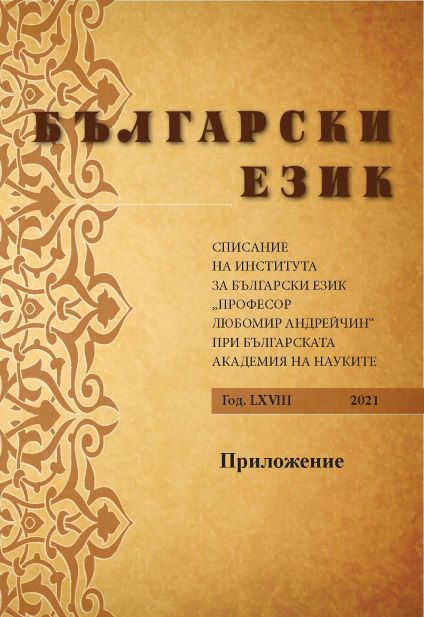Проблеми при граматическата адаптация на нови заемки от английски език
Problems of the Morphosyntactic Adaptation of Recent English Loanwords in Bulgarian
Author(s): Bozhil HristovSubject(s): Language studies, Language and Literature Studies, Applied Linguistics, Philology
Published by: Институт за български език „Проф. Любомир Андрейчин“, Българска академия на науките
Keywords: Anglicisms/English loanwords; morphosyntactic adaptation; nouns; adjectives; verbs; Bulgarian language
Summary/Abstract: This paper examines the morphosyntactic adaptation of recent English loanwords to the grammatical system of Bulgarian. It builds on the conclusions in Hristov (2015) and outlines the latest trends in the accommodation of some problematic Anglicisms. Special attention is paid to the gender and number adaptation of nouns, the (in)declinability of adjectives, as well as the adoption of new verbs. The results demonstrate that the accommodation strategies discussed in the specialist literature are for the most part followed consistently although there are some exceptions too. In spite of the sizable number of imported adjectives which receive Slavonic derivational suffixes, a large number of newly borrowed adjectives remain indeclinable; there is also evidence for the blurring of the boundaries between adjective and noun modifiers – an expected new development in the ever growing tendency for foreign adjectives to remain uninflected in Bulgarian. The few borrowed verbs likewise take derivational suffixes and are thus successfully incorporated into the Bulgarian verbal system. At the same time, there are some surprising findings which suggest that processes rather untypical of Bulgarian might be underway. Nouns exclusively denoting females can be assigned a formal masculine gender, even without belonging to the so-called dual gender of epicene nouns – a highly unusual phenomenon. The material also turns up zero plural inflections, as well as plurals with English -s. The analysis highlights the competition between Bulgari-an and foreign forms and structures, as well as the question whether those innovations have the potential to become more established in Bulgarian grammar.
Journal: Български език
- Issue Year: 68/2021
- Issue No: Special
- Page Range: 90-101
- Page Count: 12
- Language: Bulgarian

